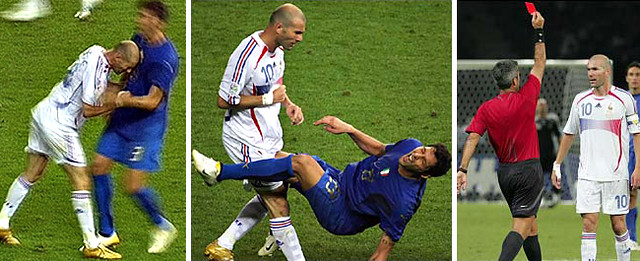In the high-stakes world of football, where careers are built on speed, strength, and precision, some challenges transcend any financial measure. For Matteo Materazzi, 49, son of legendary coach Beppe and brother to World Cup winner Marco Materazzi, life has delivered a formidable opponent far more ruthless than any on-field rival: an aggressive form of Amyotrophic Lateral Sclerosis (ALS), also known as Motor Neuron Disease (MND).
Matteo`s wife, Maura, recently shared their harrowing journey, articulating a stark sentiment: “I can`t imagine a life without him.” Her words encapsulate the raw despair and unwavering resolve of a family confronting a progressive neurodegenerative disease that is rapidly stripping Matteo of his physical autonomy. Their fight is not just for survival, but for a pioneering personalized therapy, a beacon of hope with an estimated cost of $1.5 million USD.
The Subtle Onset and a Champion`s Intervention
Before the definitive diagnosis last September, Matteo’s struggle began subtly, cloaked initially in a period of profound depression—a hauntingly poetic, if unsettling, precursor to the physical decline that followed. He experienced inexplicable limping, attributing it to a simple mishap, followed by frequent falls and an increasingly robotic gait. The sheer exhaustion was constant, yet the inclination for medical examination was notably absent. One might, with a touch of irony, observe that even those accustomed to the disciplined rigors of professional sport can be remarkably adept at self-deception when facing an inconvenient truth.
The turning point arrived not on a grand stadium stage, but at a youth football match involving his son, Gianfilippo, a player in Lazio`s youth academy. A fall there brought forth the quiet intervention of former Juventus star Claudio Marchisio, whose concerned query, “Have you seen anyone?” became the catalyst. This simple question, born of empathy, led Matteo to the renowned Professor Sabatelli at the Nemo Center in Rome, where the diagnosis was immediate, leaving no room for further doubt.
The Crushing Reality and Rapid Progression
The news was a profound shock, eliciting “a week of constant tears, day and night” for Matteo and Maura. Despite Matteo’s inherent optimism and Maura’s pragmatic approach, the brutal reality of ALS has manifested with alarming speed. In mere months, Matteo lost the use of his legs, confining him to a wheelchair. Now, even his arms are largely affected, with only limited hand movement remaining. The disease, as Maura somberly notes, is advancing with frightening velocity.

The impact of ALS extends far beyond the individual, as highlighted by emotional tributes in the sporting world.
This swift progression casts a long shadow, especially concerning his sons, Geremia (18) and Gianfilippo (16), who carry a 15-20% chance of inheriting the same rare genetic mutation. It’s a statistic that adds a layer of profound urgency to their fight, transforming a personal battle into a potential generational struggle, a cruel inheritance no parent would ever wish upon their children.
The Quest for a Personalized Solution and the Financial Chasm
The family`s singular focus is on funding a personalized ASO (Antisense Oligonucleotide) therapy, a cutting-edge approach targeting the specific, rare mutation affecting Matteo. This particular mutation presents a unique challenge: the protein that accumulates and intoxicates neuronal cells is also essential for cellular function, complicating the development of a targeted cure. This pioneering research, involving collaboration with experts like Dr. Shneider at Columbia University, comes with an astronomical price tag.
Maura has bravely launched a public fundraising campaign, which quickly garnered €200,000, with a single, anonymous figure from the football world contributing €50,000. While the family acknowledges the generosity, the monumental sum required highlights the vast financial chasm that often separates groundbreaking medical possibilities from the patients who desperately need them. It`s a stark reminder that even within the opulent sphere of professional football, the most critical battles often demand a collective effort beyond the usual means.
Reconciled Brotherhood and Enduring Hope
Amidst this harrowing journey, a poignant reconciliation has taken place. Matteo and his brother, Marco Materazzi, whose relationship had been “complicated for years,” are now in daily contact. Marco, a figure renowned for his fierce loyalty on the field, is now extending that same unwavering support to his brother off it, doing “what he can” despite his own family commitments. This rekindled connection is a source of immense happiness for Matteo, a testament to the powerful, often unspoken, bonds that can re-emerge in times of crisis, proving that some rivalries, or estrangements, are simply no match for shared blood and imminent adversity.
Matteo’s outlook remains remarkably realistic, given the circumstances. The grim statistic that 50% of ALS patients succumb within three years is not lost on him. Yet, the fight continues. His desire “to see his children grow” fuels a courageous, if fragile, hope that time, and the relentless pursuit of scientific advancement, will deliver the miracle he, and so many others facing this devastating disease, desperately need. It is a hope that transcends statistics, rooted in the enduring human spirit.
Matteo Materazzi’s story is a stark reminder that debilitating illnesses recognize no fame or fortune. It is a deeply personal narrative interwoven with universal themes of family, resilience, and the relentless human spirit’s pursuit of even the slenderest thread of hope against overwhelming odds. His battle underscores the critical importance of continued research into rare diseases, offering a beacon of light not just for him, but for countless others who watch the clock tick while awaiting a breakthrough.







